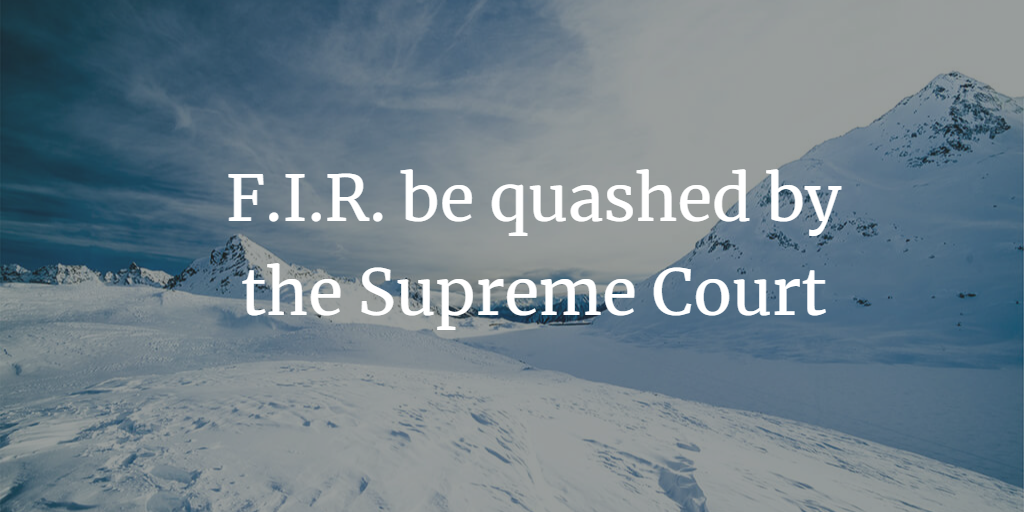Can an F.I.R. be quashed by the Supreme Court under Article 32 of Constitution of India

Table of Contents
Introduction
Understanding FIRs and Article 32
The Power of the Supreme Court
Circumstances for Quashing an FIR
Legal Procedures
Conclusion
Introduction
In India, the First Information Report (FIR) is an essential document that sets the criminal justice system in motion. The question of whether the Supreme Court can quash an FIR under Article 32 of the Constitution of India has both legal and practical implications. This article discusses the powers of the Supreme Court in this regard and outlines the circumstances and procedures involved.
Understanding FIRs and Article 32
An FIR is a written document prepared by the police upon receiving information about a cognizable offense. It provides the first step in the investigation process, and its registration is mandatory under Section 154 of the Code of Criminal Procedure (CrPC).
Article 32 of the Constitution of India grants individuals the right to approach the Supreme Court for the enforcement of their fundamental rights. It empowers the Supreme Court to issue orders, writs, or directions for the enforcement of these rights.
The Power of the Supreme Court
In general, the power to quash an FIR lies with the High Court under Section 482 of the CrPC. However, the Supreme Court can also quash an FIR under Article 32 in exceptional circumstances, such as when the FIR is found to be an abuse of the legal process or when it infringes upon the fundamental rights of the accused.
Circumstances for Quashing an FIR
The Supreme Court may quash an FIR under Article 32 in the following situations:
The allegations in the FIR do not constitute a cognizable offense.
The FIR is based on false or malicious allegations.
The FIR has been filed with mala fide intentions or to harass the accused.
The FIR infringes upon the fundamental rights of the accused.
Legal Procedures
To quash an FIR under Article 32, the accused must file a writ petition before the Supreme Court, stating the grounds for quashing the FIR and providing supporting evidence. The Supreme Court will then examine the petition and decide whether the FIR should be quashed based on the circumstances of the case.
Conclusion
While the power to quash an FIR primarily lies with the High Court under Section 482 of the CrPC, the Supreme Court can also exercise this power under Article 32 in exceptional cases. The court may quash an FIR if it is found to be an abuse of the legal process or infringes upon the fundamental rights of the accused. To initiate this process, the accused must file a writ petition before the Supreme Court, and the court will decide based on the merits of the case.


